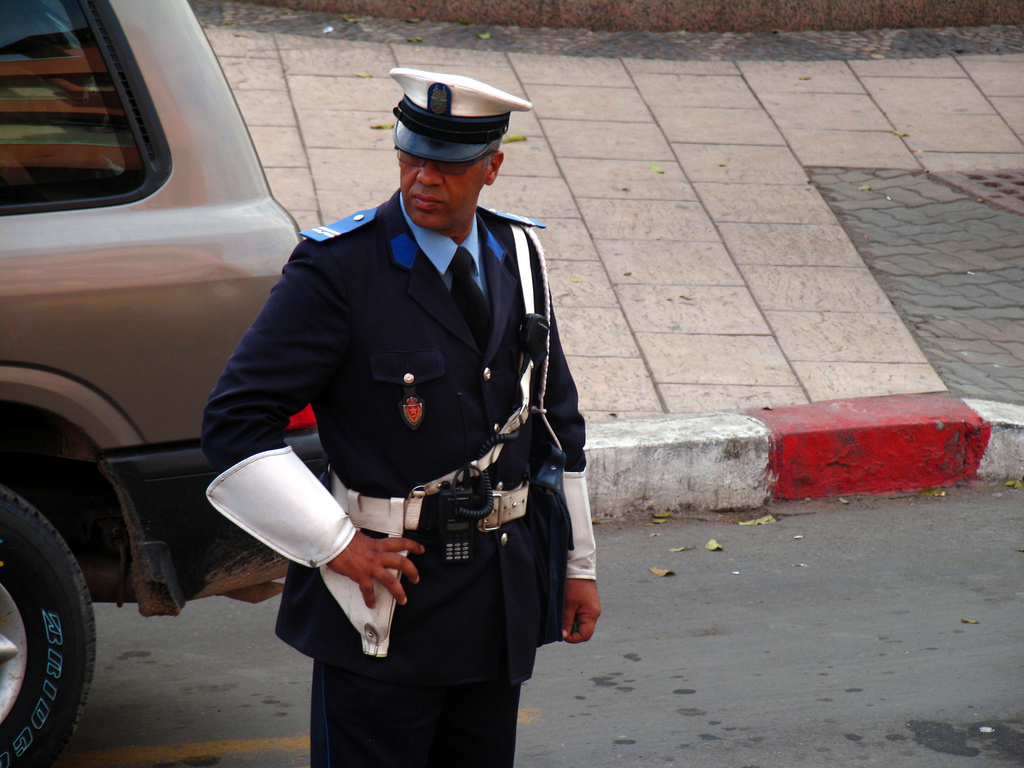Sûreté Nationale (Morocco) on:
[Wikipedia]
[Google]
[Amazon]
 The General Directorate for National Security ( ar, االمديرية العامة للأمن الوطني, , french: Direction Générale de la Sûreté Nationale) Commonly referred to by its acronym (DGSN), is the national
The General Directorate for National Security ( ar, االمديرية العامة للأمن الوطني, , french: Direction Générale de la Sûreté Nationale) Commonly referred to by its acronym (DGSN), is the national
 The General Directorate for National Security ( ar, االمديرية العامة للأمن الوطني, , french: Direction Générale de la Sûreté Nationale) Commonly referred to by its acronym (DGSN), is the national
The General Directorate for National Security ( ar, االمديرية العامة للأمن الوطني, , french: Direction Générale de la Sûreté Nationale) Commonly referred to by its acronym (DGSN), is the national police force
The police are a constituted body of persons empowered by a state, with the aim to enforce the law, to ensure the safety, health and possessions of citizens, and to prevent crime and civil disorder. Their lawful powers include arrest and th ...
of the Kingdom of Morocco
Morocco (),, ) officially the Kingdom of Morocco, is the westernmost country in the Maghreb region of North Africa. It overlooks the Mediterranean Sea to the north and the Atlantic Ocean to the west, and has land borders with Algeria to ...
. The DGSN is tasked with upholding the law
Law is a set of rules that are created and are enforceable by social or governmental institutions to regulate behavior,Robertson, ''Crimes against humanity'', 90. with its precise definition a matter of longstanding debate. It has been vario ...
and public order
In criminology, public-order crime is defined by Siegel (2004) as "crime which involves acts that interfere with the operations of society and the ability of people to function efficiently", i.e., it is behaviour that has been labelled criminal ...
.
It was founded on 16 May 1956 by King Mohammed V. In 2007, the Sûreté Nationale had approximately 46,000 personnel. A decade later, in 2017, the number of personnel increased to 70,000.
As of 2004, the Sûreté Nationale operated the following specialist divisions:
* The Border Police: responsible for border control and surveillance
* Mobile Intervention Corps: tasked with rapid intervention in major emergencies
* National Brigade: primarily responsible for investigation on serious crimes including terrorism, organized and white-collar crime.
History
Before colonialism, theShurta
''Shurṭa'' ( ar, شرطة) is the common Arabic term for police, although its precise meaning is that of a "picked" or elite force. Bodies termed ''shurṭa'' were established in the early days of the Caliphate, perhaps as early as the caliphate ...
(police) enforced Sharia law
Sharia (; ar, شريعة, sharīʿa ) is a body of religious law that forms a part of the Islamic tradition. It is derived from the Five Pillars of Islam, religious precepts of Islam and is based on the Islamic holy books, sacred scriptures o ...
and ensured security across the country. During the Almohad caliphate
The Almohad Caliphate (; ar, خِلَافَةُ ٱلْمُوَحِّدِينَ or or from ar, ٱلْمُوَحِّدُونَ, translit=al-Muwaḥḥidūn, lit=those who profess the Tawhid, unity of God) was a North African Berbers, Berber M ...
, the caliph took on the role of ṣāḥib al-shurṭa (head of police). There were regional and tribal Muhtasibs (equivalent to a police commissioner) who were appointed by the Pasha
Pasha, Pacha or Paşa ( ota, پاشا; tr, paşa; sq, Pashë; ar, باشا), in older works sometimes anglicized as bashaw, was a higher rank in the Ottoman Empire, Ottoman political and military system, typically granted to governors, gener ...
. The Muhtasib had the power to issue fines for minor offenses. Criminals were tried in front of a Qadi
A qāḍī ( ar, قاضي, Qāḍī; otherwise transliterated as qazi, cadi, kadi, or kazi) is the magistrate or judge of a '' sharīʿa'' court, who also exercises extrajudicial functions such as mediation, guardianship over orphans and mino ...
, the judge of a Sharia court. The Qadi issued judgements in criminal, civil and commercial cases.
In 1912, the Shurta was replaced by the Protectorate's Police Service after the installement of the French Protectorate in Morocco. In 1913, a forensic identification unit was formed. A general forensic identification service was formed in November 1931.
On May 16, 1956, a year after Morocco gained independence, the DGSN was formed. The Royal Institute of Police in Kenitra was inaugurated in 1978. The Scientific and Technical Police Laboratory in Casablanca was created in 1991.
References
See also
*Groupes urbains de sécurité
Groupes urbains de sécurité (GUS) (also known as "Croatia") ( en, Urban Security Groups) is a defunct Moroccan special police unit which dealt with urban matters using the "rapid intervention approach."
Background
GUS was established by the Di ...
Law enforcement agencies of Morocco
{{Morocco-stub